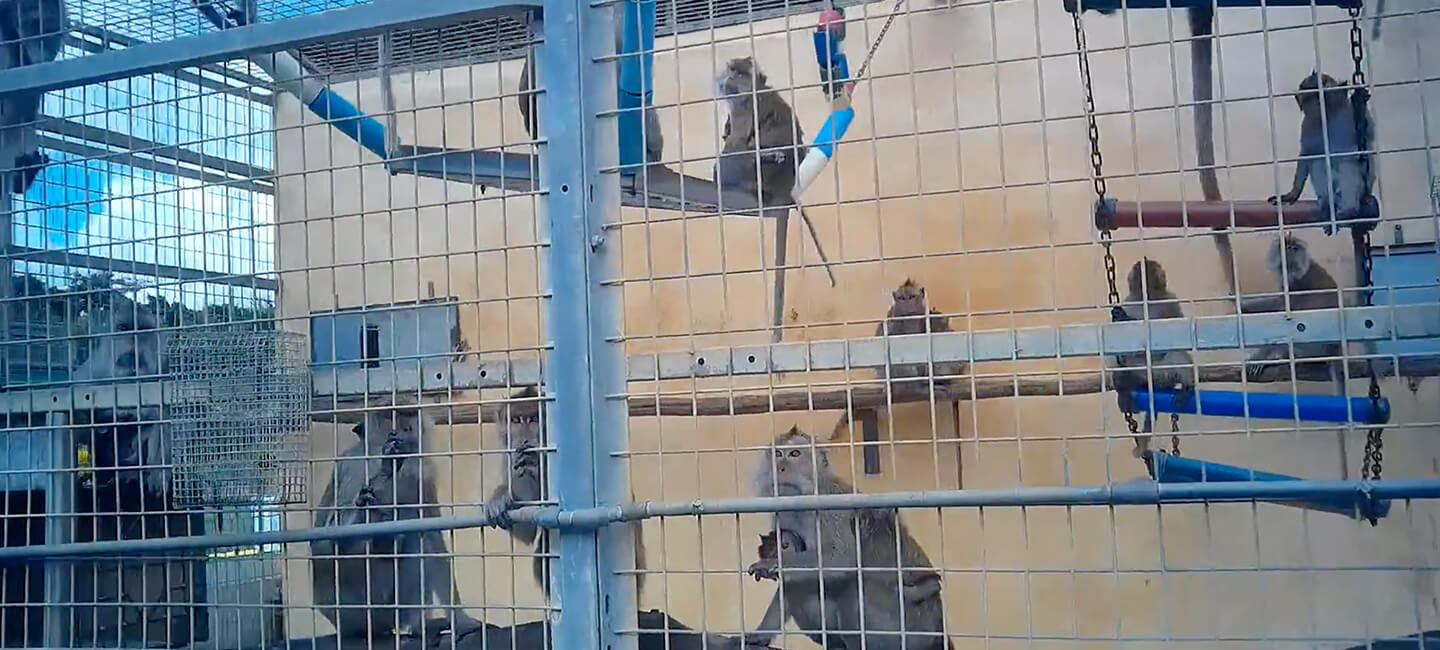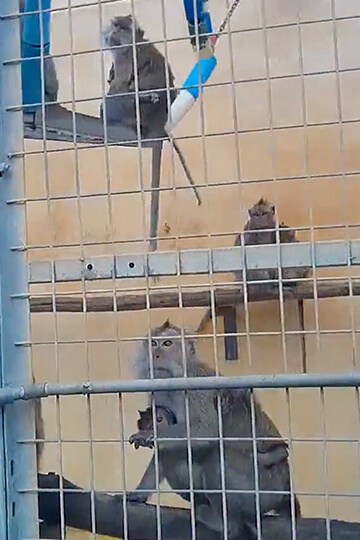

Macaques imported from Africa and Asia at the heart of the animal testing statistics for 2023
The animal testing statistics for 2023 have just been released, and the situation looks bleak for primates, especially macaques. While the authorities claim they want to restrict their use, the data tells a very different story: most of them originate from countries outside the European Union, often without any traceability. Even more worrying is the increasing use of monkeys whose parents were captured in the wild. Behind the reassuring reports, this practice is intensifying. One Voice analyses the official figures.
Long-tailed macaques, an endangered species, at the centre of experimentation
In 2023, 3,459 non-human primates were used in animal experiments in France. Among them:
- 3,077 cynomolgus macaques (long-tailed macaques)
- 275 marmosets
- 24 rhesus macaques
- 36 prosimians
- 8 squirrel monkeys
- 39 baboons
The capture of monkeys, particularly long-tailed macaques, contributes significantly to their classification as ‘endangered’ by the IUCN. These already threatened species find themselves on the front line in Western laboratories.
The persistent use of first-generation primates
According to a report published by the European Commission in 2017, the use of first-generation primates born in captivity (known as ‘F1’, born to parents captured in the wild) was to be banned from November 2022. However, the practice continues… and is intensifying.
In spite of all the fine words and reports expressing good intentions, the reality on the ground remains unchanged. Not only does the use of ‘F1’ macaques continue, but it is increasing every year:
- In 2021, 639 ‘F1’ primates were used
- In 2022, 946
- In 2023, 958
And that’s not all: of the 3,101 macaques (cynomolgus and rhesus) used in 2023, 1,022 simply have no declared origin. This lack of traceability reveals serious flaws in a system that is supposed to be strictly regulated.
Massive dependence on non-European imports
Only 29 macaques used in France in 2023 come from approved breeding facilities within the EU — barely 0.94% of the total. The rest?
- 1,619 come from Africa (52%)
- 431 from Asia (13%)
- And for 1,022 individuals, no information is available on their geographical origin or generation (captive or wild).
A third of the primates used are therefore shrouded in administrative fog, in total contradiction with the promises of transparency. Our investigation in Mauritius has already revealed the grey areas of this international trade.
A national primatology centre: the wrong answer
Faced with this dependence, the CNRS is considering creating a national primatology centre to produce “half of the monkeys needed by French laboratories”. But this project is causing serious concern.
Rather than increasing the number of breeding facilities, shouldn’t we be enforcing existing regulations, improving traceability and, above all, investing in ethical and European alternatives that are already available? This project seems to ignore the scientific, ethical and legal issues raised by mass importation of primates. We are therefore organising a joint rally with our partners on 26 April in Rousset in the Bouches-du-Rhône region.
Let’s demand an end to experimentation on macaques!
Sign the petition against the expansion of the Rousset laboratory, and demand an immediate moratorium on the use of macaques in laboratories.
To learn more about the fate of primates in experimentation, see our detailed report.